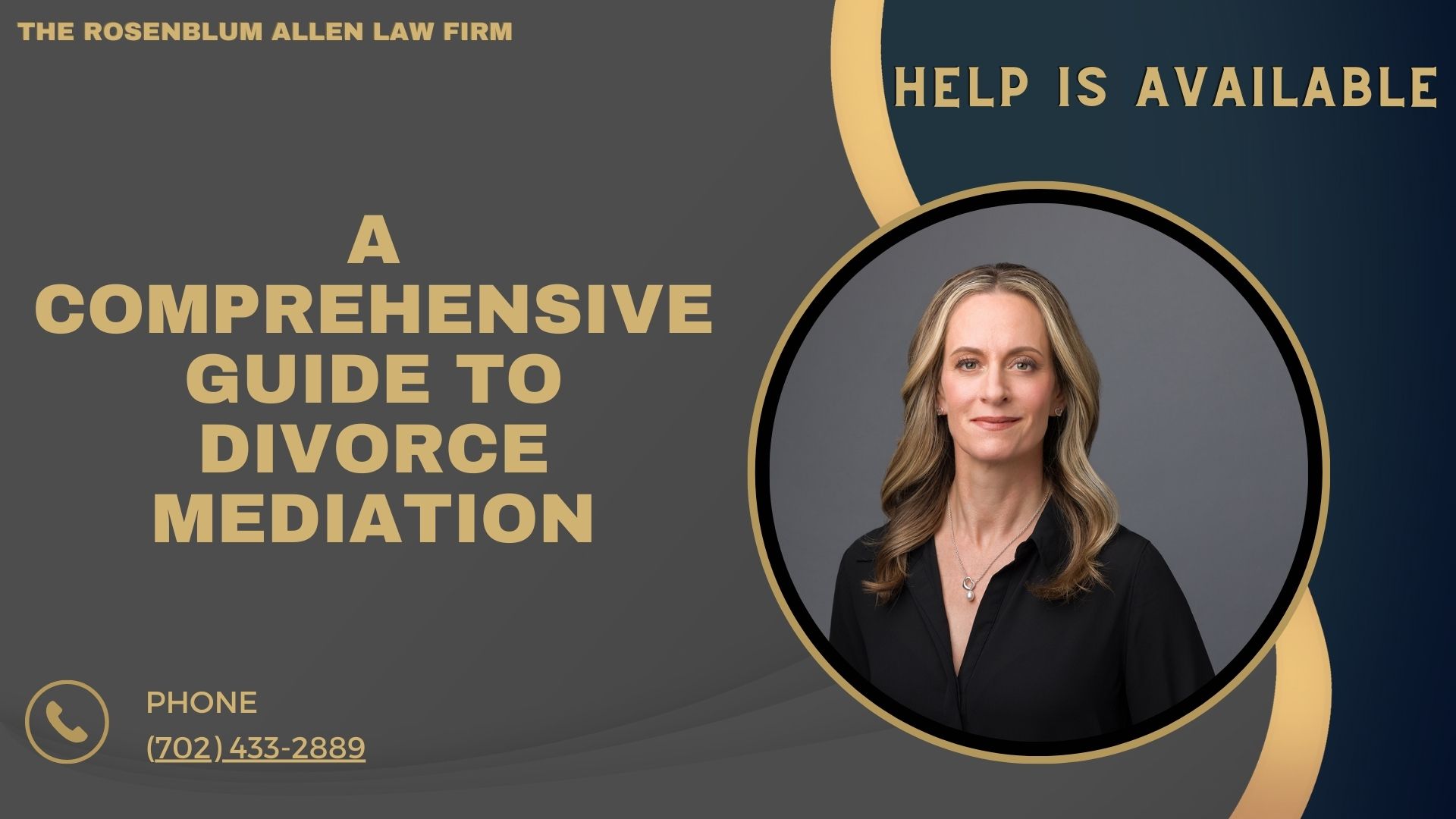What is Divorce Mediation?
Definition and Overview
Divorce mediation is a process. A neutral third party, called a mediator, helps divorcing couples. They reach a mutual agreement. The mediator does not make decisions. But, unlike a judge, they enable communication and negotiation between the parties.
Purpose of Mediation in Divorce
Mediation’s main goal is to offer a friendlier, faster, and cheaper option. It is an alternative to traditional divorce trials. It aims to:
Reduce conflict and stress
Promote cooperative problem-solving
Allow couples to maintain control over decisions affecting their lives
Differences Between Mediation and Traditional Divorce
Mediation differs from traditional divorce in several ways:
Decision Maker: In mediation, the couple makes decisions with the mediator’s help. In a conventional divorce, a judge makes the final decisions.
Process: Mediation is collaborative and non-adversarial, while traditional divorce is often adversarial.
Cost: Mediation is generally less expensive than traditional divorce, which can involve high legal fees.
Time: Mediation is usually quicker, without the need for lengthy court procedures.
Privacy: Mediation is confidential, whereas traditional divorce proceedings are part of the public record.
Benefits of Divorce Mediation
Cost-Effectiveness
Mediation is often more affordable than traditional divorce. Legal fees and court costs can add up fast. But, mediation usually has fewer billable hours and less paperwork.
Time Efficiency
Mediation can significantly reduce the time it takes to complete a divorce. Couples can reach an agreement faster. They do not need many court hearings and long legal procedures.
Confidentiality
Mediation sessions are private and confidential. Public court cases are different. The details of your mediation stay between you, your spouse, and the mediator.
Control Over Outcomes
In mediation, you and your spouse have control over the final agreement. A judge’s decision doesn’t bind you. You can make solutions that work best for your situation.
Reduced Conflict and Stress
Mediation fosters cooperation. It can reduce the hate and stress of divorce. This can be especially helpful if you have children. You must keep a friendly relationship after divorce.

The Divorce Mediation Process
Initial Consultation
The mediation process usually starts with an initial consultation. During this meeting, the mediator explains the process. They answer questions and make sure both parties understand what to expect.
Selection of a Mediator
Choosing the right mediator is crucial. Look for someone with:
Relevant experience and qualifications
Good communication skills
A neutral stance and no conflicts of interest
Preparing for Mediation
Preparation involves gathering all needed documents. These include financial records, property deeds, and custody agreements. Setting clear goals and priorities is essential. They are for what you hope to achieve through mediation.
The Mediation Sessions
Mediation sessions typically involve:
Opening statements from both parties
Discussion of issues and concerns
Negotiation of agreements
Drafting of a final settlement
The number of sessions needed can vary. It depends on the issues’ complexity and both parties’ willingness to compromise.
Final Agreement and Legal Formalities
Once an agreement is reached, the mediator drafts a formal settlement. If desired, each party’s lawyer reviews this document. They then submit it to the court for approval. Once approved, it becomes legally binding.
Choosing a Divorce Mediator
Qualifications to Look For
When choosing a mediator, it’s essential to consider their qualifications. Look for someone with:
Relevant education and training in mediation and family law
Professional certifications or accreditations from recognized mediation organizations
A strong track record and positive testimonials from previous clients
Experience and Specialization
Experience matters in mediation. You want someone who has handled many cases, particularly those like yours. Consider family law and divorce mediators. Make sure they are well-versed in the nuances of these cases.
Professional Certifications and Memberships
Check if the mediator is in professional organizations. These include the Association for Conflict Resolution and the American Bar Association. These memberships say a commitment to ongoing education and adherence to professional standards.
Questions to Ask Potential Mediators
When interviewing potential mediators, ask questions like:
How many divorce mediations have you conducted?
What is your approach to mediation?
How do you handle high-conflict situations?
Can you provide references or testimonials from past clients?

Common Issues Addressed in Divorce Mediation
Division of Assets and Debts
One of the primary issues in divorce mediation is the division of marital assets and debts. This includes:
Real estate properties
Bank accounts and investments
Vehicles and personal property
Credit card debts and loans
Child Custody and Visitation
Child custody and visitation are critical concerns. Mediation helps make a parenting plan that works for both parents. It also serves the children’s best interests. Discussions may cover:
Physical custody (where the children will live)
Legal custody (decision-making authority)
Visitation schedules
Child Support
Determining child support is another critical issue. Mediation helps parents agree on the following:
The amount of support
Payment schedules
Adjustments for changing circumstances
Spousal Support/Alimony
Both parties may need spousal support or alimony. It is to keep a reasonable post-divorce living standard for them. Mediation addresses:
The amount and duration of payments
Factors influence support. They include the length of the marriage and each spouse’s money.
Retirement Accounts and Benefits
Dividing retirement accounts and benefits can be complex. Mediation helps ensure a fair distribution of:
Pensions
401(k)s
IRAs
Other retirement savings plans
Preparing for Divorce Mediation
Gathering Necessary Documents
Preparation is critical to successful mediation. Gather all relevant documents, including:
Financial statements
Tax returns
Property deeds
Loan documents
Any other records related to assets and debts
Setting Goals and Priorities
Before mediation begins, outline your goals and priorities. Consider what is most important to you and where you are willing to compromise. This will help guide the discussions and negotiations.
Understanding Your Legal Rights
It’s crucial to understand your legal rights before entering mediation. Consult with a lawyer if needed to ensure you are informed about:
Property rights
Custody laws
Support obligations
Emotional Preparation and Support
Divorce can be emotionally challenging. Prepare yourself by:
Seeking support from friends, family, or a therapist
Practicing stress-reduction techniques
Keeping a positive and open-minded attitude toward the mediation process

During the Mediation Sessions
Roles and Responsibilities of Each Party
In mediation, each party has specific roles and responsibilities. The mediator runs the discussion. You and your spouse join in and negotiate the terms of your divorce.
Communication Tips and Strategies
Effective communication is crucial for successful mediation. Consider these tips:
Listen actively and empathetically
Speak clearly and honestly
Stay focused on the issues, not personal grievances
Negotiation Techniques
Negotiation is at the heart of mediation. Techniques that can help include:
Identifying common interests
Being open to creative solutions
Remaining flexible and willing to compromise
Handling Impasses and Disagreements
Impasses and disagreements are common in mediation. Strategies to handle them include:
Taking breaks to cool down
Reframing issues to find common ground
Using the mediator’s expertise to explore alternative solutions
After Divorce Mediation
Reviewing the Mediation Agreement
Once an agreement is reached, it’s essential to review it carefully. Both parties should:
Read through the entire document
Ensure all agreed-upon terms are included
Verify that the language is clear and precise
Legalizing the Agreement
The mediation agreement must be legalized to become enforceable. This usually involves:
Having the agreement reviewed by each party’s attorney (if they have one)
Filing the agreement with the court
Attending a brief court hearing where a judge reviews and approves the agreement
Post-Mediation Steps
After the agreement is legalized, there are a few more steps to take:
Carry out the terms of the agreement. This may involve transferring assets or changing living arrangements.
Update legal documents, such as wills and insurance policies, to reflect the divorce
Create new financial accounts if needed
Modifications and Enforcement of Agreements
Life changes can require modifications to the mediation agreement. This can include:
Changes in income or employment status
Relocation
Changes in children’s needs
To change the agreement, you’ll generally need to:
Discuss the changes with your ex-spouse
Possibly return to mediation to agree on the new terms
File the modified agreement with the court for approval
If one party does not follow the agreement, enforcement may be necessary. This might involve:
Returning to mediation to resolve the issue
Filing a motion with the court to enforce the agreement

Potential Challenges in Divorce Mediation
High-Conflict Situations
High-conflict situations can be challenging in mediation. Strategies to manage high conflict include:
Establishing clear rules for communication
Using separate rooms (shuttle mediation) to reduce direct conflict
Involving therapists or counselors to manage emotions
Imbalance of Power Between Parties
An imbalance of power can affect the fairness of mediation. To address this, mediators may:
Ensure both parties have equal time to speak
Use techniques to empower the less dominant party
Suggest involving legal advisors to support each party
Complex Financial Matters
Complex financial matters can complicate mediation. To handle these issues:
Gather comprehensive financial documentation
Consider involving financial experts, such as accountants or financial planners
Break down complex issues into smaller, more manageable parts
Emotional and Psychological Barriers
Emotional and psychological barriers can hinder mediation. Overcoming these barriers may involve:
Seeking support from mental health professionals
Taking breaks during sessions to manage stress
Focusing on the future rather than past grievances

When Divorce Mediation Might Not Be Suitable
History of Domestic Violence or Abuse
Mediation may not be appropriate if there is a history of domestic violence or abuse. In such cases:
Safety and well-being are the top priorities
Traditional litigation or other legal protections may be necessary
Severe Power Imbalances
Severe power imbalances can make fair mediation difficult. If a party can’t advocate for themselves, mediation might not be best.
Lack of Willingness to Compromise
Mediation relies on both parties’ willingness to compromise. Mediation may fail if one or both parties won’t negotiate. They won’t consider the other’s view.
High Complexity of Legal Issues
Some divorces involve complex legal issues. A court may need to scrutinize them closely. This includes cases involving:
Complex business interests
Significant assets
International legal concerns

Breaking It All Down
Summary of Key Points
Divorce mediation offers a collaborative, cost-effective, and less adversarial approach to divorce. It allows couples to control their outcomes, promotes communication, and reduces conflict. Understanding mediation is critical to its success. Preparing well and knowing when it’s appropriate are also key.
Encouragement to Consider Mediation
If you’re facing a divorce, consider mediation as a viable option. It can save you time, money, and emotional stress. Mediation fosters a more positive post-divorce relationship. This is crucial if you have children.
Final Thoughts and Considerations
Every divorce is unique. Take the time to evaluate your situation and consider all your options. Seek professional advice, and choose the path that best suits your circumstances. Mediation is valuable for achieving a fair and friendly resolution. It lets you move forward.

Frequently Asked Questions
How long does divorce mediation typically take?
The time for divorce mediation varies. It depends on the issues’ complexity and the parties’ cooperation. Mediation can last anywhere from a few weeks to several months.
Is it necessary to have separate lawyers during mediation?
Separate lawyers are not needed during mediation. But, each party should seek legal advice. This protects your interests. You will also understand any deals made in mediation.
What happens if mediation fails to reach an agreement?
If mediation fails to reach an agreement, you still have options. You can proceed with traditional divorce litigation, where a judge will decide. The discussions in mediation are confidential. They can’t be used in court. So, you’ll have a fresh start in the legal process.
How legally binding is the mediation agreement?
The mediation process itself is not legally binding. But, once a court agrees to it and approves it, the agreement becomes a legal document. This means both parties must follow the contract’s terms. They are legally obligated to do so.
How much does divorce mediation typically cost?
The costs of divorce mediation vary. They depend on things such as the mediator’s fees, the number of sessions, and any extra services. But, mediation is usually cheaper than traditional divorce litigation. It is a more affordable option for many couples.

Additional Resources for You
Don’t forget, our lead attorney, Molly Rosenblum Allen, Esq, has created additional resources to assist you in your time of need:
Nevada Divorce: Learn about the specific requirements and procedures for obtaining a divorce in Nevada, including residency requirements and grounds for divorce.
Surviving Divorce: Coping with divorce can be challenging. This resource provides tips and strategies for navigating the emotional and practical aspects of divorce.
What Happens If You Don’t Sign Divorce Papers: Understand the implications of refusing to sign divorce papers and how it can affect the divorce process.
Do I Need an Attorney to Get a Divorce: Explore the role of an attorney in the divorce process and determine if legal representation is necessary for your situation.
What is a Collaborative Divorce: Learn about collaborative divorce as an alternative dispute resolution method that prioritizes cooperation and mutual agreement.
How to Win a Divorce: Gain insights into strategies for achieving a favorable outcome in your divorce, including negotiation tips and legal considerations.
Switching Lawyers During Divorce: If you’re considering changing legal representation during your divorce, Attorney Molly Rosenblum Allen can provide guidance on the process.
How Long Does a Divorce Take in Nevada: Understand the factors that influence the duration of a divorce in Nevada and get an estimate of the timeline for your case.
High Conflict Divorce: If you’re dealing with a high-conflict divorce, Attorney Molly Rosenblum Allen can offer strategies for managing disputes and protecting your interests.
Questions to Ask a Divorce Lawyer: Get prepared for consultations with divorce lawyers by reviewing essential questions to ask and factors to consider when choosing legal representation.
Feel free to explore these resources for additional information and support on matters related to child custody and visitation.

Outside Resources for You
American Arbitration Association (AAA): The AAA offers resources on alternative dispute resolution methods, including mediation, to help parties resolve conflicts outside of court.
Mediate.com: Mediate.com provides information, articles, and directories of mediators to assist individuals seeking mediation services for various legal matters, including divorce.
National Association for Community Mediation (NAFCM): NAFCM offers resources and support for community mediation centers across the United States, providing access to mediation services for individuals and families.
American Bar Association (ABA) – Dispute Resolution Section: The ABA’s Dispute Resolution Section offers information and resources on mediation, arbitration, and other forms of alternative dispute resolution.
Association of Family and Conciliation Courts (AFCC): AFCC provides interdisciplinary resources, training, and research on family court matters, including divorce mediation and co-parenting.
National Academy of Distinguished Neutrals (NADN): NADN offers a directory of experienced mediators and arbitrators across the United States, allowing individuals to find qualified neutrals for resolving legal disputes.
The Association for Conflict Resolution (ACR): ACR provides resources, training, and networking opportunities for professionals involved in conflict resolution, including mediation practitioners.

A Special Message from Our Lead Attorney, Molly Rosenblum Allen, Esq

Thank you for taking the time to explore our resources! I hope you found them helpful in navigating your divorce journey. If you have questions or want guidance, please ask. You can schedule a free consultation with me by calling (702) 433-2889. I look forward to assisting you.






